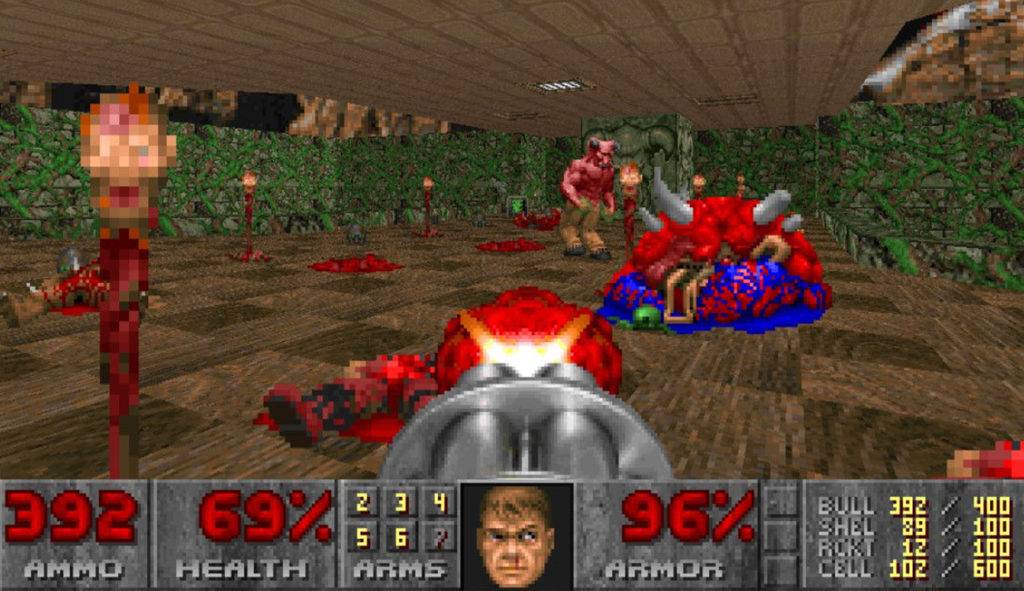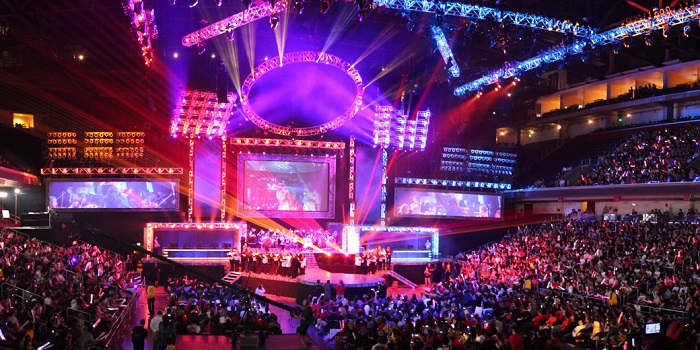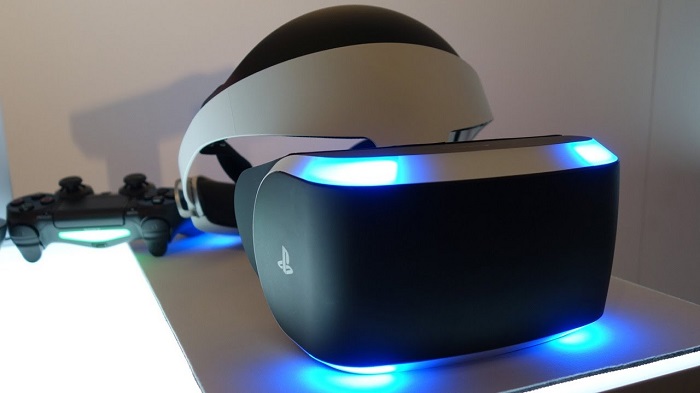The gaming industry has undoubtedly come a long way from where it was initiated. From being a mere mode of entertainment back then, it has grown into something robust which garners huge amounts of traction. From millions of dollars in sponsors to colossal amount of individuals playing games, the lucrative industry is now professionally termed as ‘The esports Sector’ and enjoys a huge viewership. While games are popular both on PC (Personal Computers) and console, the former boasts of a larger scale of exposure on today’s date. Almost everyone who has played or heard of gaming has resorted to PC gaming at some point. In fact, most of them might be familiar with Prince of Persia (2D), Road Rash or DOOM as their initial games. Let’s take a look at the steady journey and sudden rise of PC Games.
THEN:
Back in the day, when video games were just coming into being, they were mostly made for consoles. The first graphical computer game adapted from Tic-Tac-Toe and named OXO was launched for EDSAC in 1952, while in 1962, Steve Russell created and released SpaceWar!, which is often considered as the first ever game intended for a computer. The early games for computers were mostly Interactive Fiction or Text Adventures, where a user was required to enter commands through the keyboard in order to play the game. Although, till middle to late 1900s, PC games were mostly adaptations of console games and were not as much popular.
Soon in 1983, as there was an overflow of cheap and copied console games into the market, which resulted in a huge recession in the video gaming industry known as the The Video Game Crash or the Atari Shock in Japan. This paved the way for PC games and they gained popularity steadily. Taking the situation into consideration, some companies launched games which changed the way PC games were perceived.

Some of these include id Software’s DOOM, which revolutionized the first person gaming genre for PC and The Warcraft series from Blizzard Entertainment and their introduction to the virtual world of MMORPG with “World of Warcraft”, which still enjoys a score of players. The Counter Strike series from Valve ushered in a new era for how First Person Shooter (FPS) PC games are played, making Counter Strike 1.6 one of the most played FPS, PC game of all time, eventually followed by the immensely popular series of Medal of Honour and Call of Duty, opening huge scopes of competitive level of gaming throughout the globe. Finally, computer games started taking the high graphics into consideration in regards to respective computers.
NOW:
During mid 1990s, the PC gaming lost its popularity before regaining it in mid 2000s, with credits to digital distribution of games, which made it easier for consumers to get a game or even download or purchase expansions or updates and of course, the intervention of online gaming provided further boost to the industry. Gaming is a flamboyant, global industry which is growing rapidly in revenues, viewership and popularity and its professional arm is termed esports. In 1972, students from the Stanford University initiated the first ever professional gaming event, followed by Atari with their large scale gaming competition. Between 2000 and 2010, esports became a centre of attraction for major companies, who intended on creating an ecosystem for the sole purpose of esports or professional gaming.
Leagues like the Electronic Sports League (ESL), which was founded during the 90s, started gaining steady but good recognition throughout the gaming circuit. Major League Gaming (MLG) was the first one to facilitate players from Canada and America to compete against each other.
 By 2005, PC users started moving towards multi-core CPUs, which allowed the users to run various tasks at once, thus in turn, facilitating more complex in-game graphics and physics.
By 2005, PC users started moving towards multi-core CPUs, which allowed the users to run various tasks at once, thus in turn, facilitating more complex in-game graphics and physics.
In 2002, Valve launched Steam, which acts as a digital distribution platform where consumers can buy games online and also acts as a social networking platform for gamers to connect and play games over the internet. This eased the way for PC gamers to connect with others while gaming. It not only provided a platform for players to play with each other, but Steam’s Greenlight feature encouraged independent PC game designers to display their talent through the same platform, where hundreds of games are uploaded a day. Success stories of indie games like, Lovely Planet by Vidhvat Madan and Mike Bithell’s Thomas Was Alone stand in testimony to the same.
What might be NEXT:
PC gaming has come a long way from where it all began. There was a time when PC games were only mere copies of Console games, but now there are million dollar franchises that focus solely on PC games. With big players like Blizzard Entertainment trying to build a competitive ecosystem with PC games like Heroes of the Storm, World Of Warcraft, Overwatch, Hearthstone over their engine, Battle.net, and many other companies following suit, the future of PC gaming seems to be a bright one.

With advanced technologies inclusive of Virtual Reality (VR), the world of PC gaming is likely to evolve by leaps and bounds. Suave gadgets like Oculus Rift and HTC Vive will surely enhance the gaming experience of a user with the assistance of virtual reality.
Given the trend, the genre of games that enjoy the most popularity might also change in future, if not soon. Multiplayer Online Battle Arenas or MOBAs have been an immensely popular genre of game with big names like like Dota 2, League of Legends, Heroes Of The Storm. Hi-Rez Studios’ Smite brought in a change in the way MOBAs are played, making it a third person skill shot based game, while Blizzard Entertainment launched its brand new first person shooter named “Overwatch”, which deviates from the typical FPS pattern and mixes up with the MOBA genre, where objectives are the key.
Final thoughts:
While PC gaming has seen a good resurgence after their initial douse, it still has a long way to go. While they were popular side by side of consoles like PS1 or PS2, PC gaming took a blow when PS3 was launched, although it is far from the day when PC gaming is literally challenged.
Games for PC are harder to develop than for consoles as the developers have to keep in mind the different configurations a user of a PC might play it in, while a console has the same central system for all users, although creating a PC game comes at a lower cost. The genre is getting more and more popular as it PC gaming raked in $30 billion in revenues in 2016 and big players like Facebook is also keen on delving into the scene.
Consumers are often boggled as which PC would be good for gaming and how to assemble a good one, while it’s easy to find a good console.
Whatever may be the case, PC games seem to have a good future prospect, as companies are even launching console versions of respective games after release in PCs.
